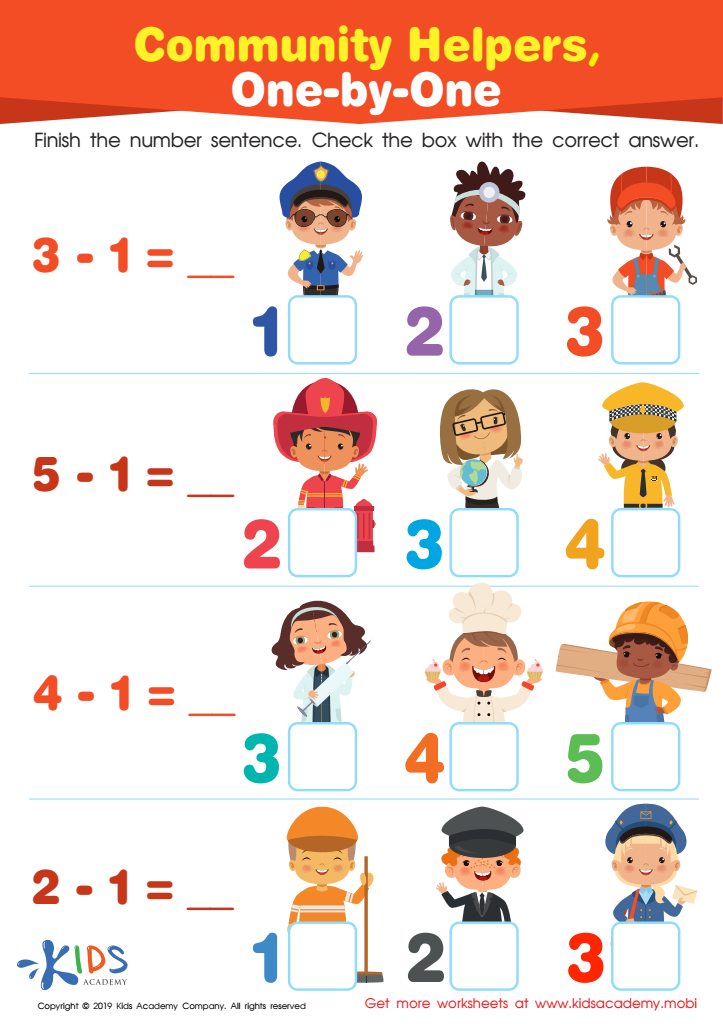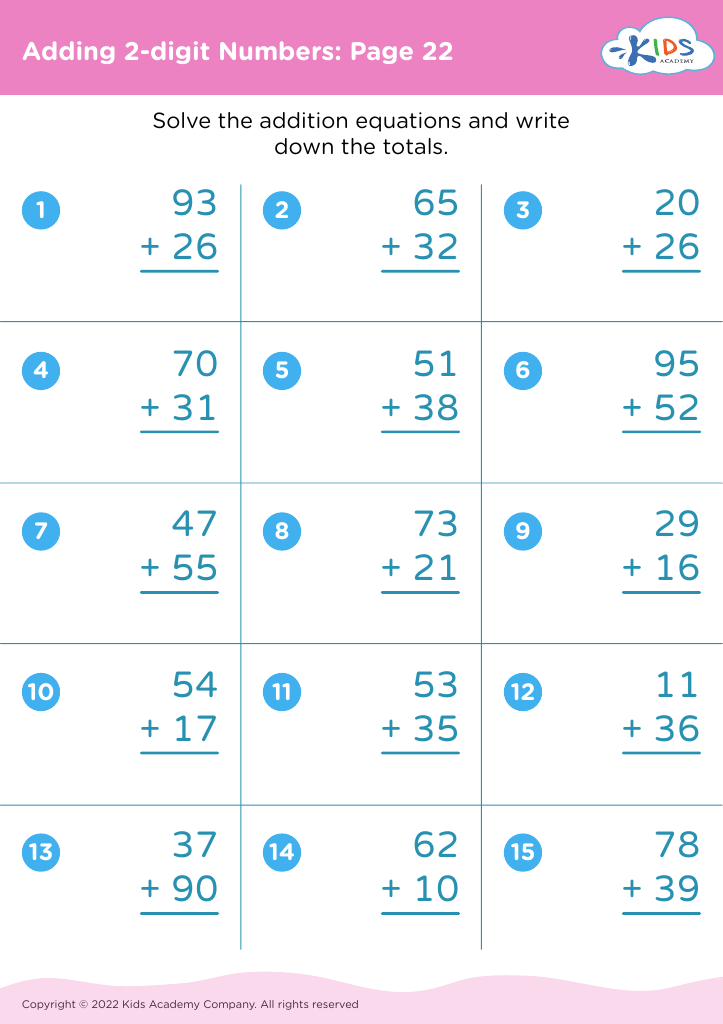Develop counting skills Addition & Subtraction Worksheets for Ages 6-9
6 filtered results
-
From - To
Enhance your child's math abilities with our engaging counting skills worksheets, designed for children aged 6-9. These thoughtfully crafted activities focus on developing essential addition and subtraction skills through interactive and fun exercises. Perfect for reinforcing classroom learning or supplementing home study, our worksheets encourage young learners to explore numbers and improve their understanding of basic math concepts. With a variety of problems and colorful illustrations, children will enjoy practicing counting, solving equations, and building confidence in their mathematical abilities. Download our worksheets today and watch your child's counting skills soar, laying a strong foundation for their future success in math!


Community Helpers, One-by-One Worksheet
Developing counting skills, addition, and subtraction is crucial for children aged 6-9 as it lays the foundation for their future mathematical understanding and academic success. During these formative years, children are not only learning basic arithmetic but also enhancing their cognitive, problem-solving, and analytical abilities.
Firstly, counting skills form the bedrock of more complex mathematical concepts. If children master counting, they can easily transition into addition and subtraction. These skills are not just abstract concepts; they are practical tools they will use in everyday life, from managing money to understanding time. Enhancing these skills boosts children's confidence in their abilities to tackle math, which can lead to a more positive attitude towards learning.
Moreover, early intervention in these areas can help identify any learning difficulties, ensuring that children receive the support they need promptly. Parent and teacher engagement in this process fosters a positive learning environment and encourages motivation.
Finally, proficiency in basic math promotes readiness for more advanced topics in later grades, establishing a solid mathematical foundation that can influence their performance in science and other critical school subjects. Therefore, parents and teachers should view the development of these skills as essential to equipping children for future academic challenges and success.

 Assign to My Students
Assign to My Students




















